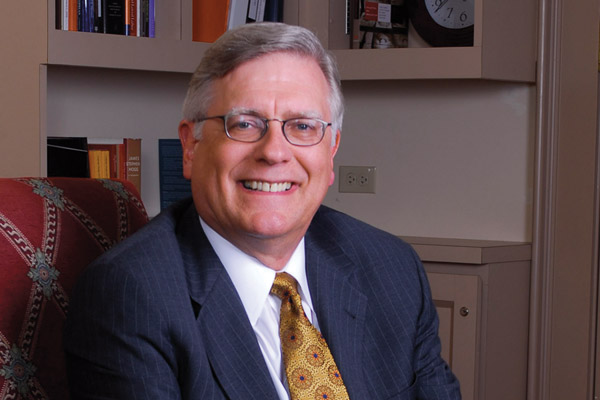Liberal Arts scholars understand the world doesn’t operate in a vacuum—so neither does their research. Everyday, faculty members across the college draw inspiration for their work from the pressing issues facing society today.
From unearthing the oldest case of tuberculosis, which has reemerged as a global killer, to examining the benefits and drawbacks of genetic ancestry tests, liberal arts researchers use academic inquiry to inform health policies and market decisions.
Attracting and supporting faculty members who bring important ideas and solutions to society and deepen students’ educational experiences, is critical to the college’s mission—and its competitiveness. This year, we welcomed 38 new scholars to liberal arts: 18 women and 20 men. Eight of these new faculty members are Latino and five are African American.
In addition, we recruited an unusually large number of distinguished senior scholars:
• Dean Young in English
• Jacqueline Jones and Miriam Bodian in History
• Tom Tweed in Religious Studies
• Zenzi Griffin in Psychology
• Brian Jones and Jeffrey Abramson in Government and
• Javier Auyero and Nestor Rodriguez in Sociology.
The Human Condition
In this issue of Life & Letters, titled the Human Condition, we introduce you to researchers who explore our time here on earth by surfacing archaeological links to our past and examining the implications of ancestry research for our sense of self.
You’ll meet the thought-leaders who champion the humanities’ role in society and examine the human life cycle by delving into the world of children and analyzing how intimate relationships affect health.
In the Evolution and Ancestry section of the magazine, John Kappelman unearths the oldest case of tuberculosis, which has reemerged as a global killer, and Deborah Bolnick examines the benefits and drawbacks of genetic ancestry tests. Researchers from the Center for Perceptual Systems open their labs to readers interested in exploring the inner workings of the human senses—and how we perceive our world. I am proud to be a member of the center and its team of scientists ably led by psychology researcher Wilson Geisler. Recently, my colleague and friend was elected into the National Academy of Sciences, one of the highest U.S. honors for a scientist or engineer.
In the Humanities section of the issue, Keith Maitland, creative writing alumnus, invites you behind the scenes of his movie sets to learn about the stories at the heart of his films, and Daniel Bonevac draws upon pop culture, film and television to explore philosophy with the next generation of thinkers.
Finally, the back page of the magazine highlights the pioneering work of the new Schusterman Center for Jewish Studies, which will build on the college’s top-ranked Latin American history program and the Teresa Lozano Long Institute of Latin American Studies. Under the leadership of historian Bob Abzug, the center is working to match the generous $6 million challenge grant to expand the scholarship on the history, culture, and society of Jews in the Americas, including the United States and Canada.
Liberal Arts: Learning that Lasts a Lifetime
The Human Condition is the second edition of a three-part series of Life & Letters issues designed to bring the college’s researchers closer to communities throughout the nation—and world.
Earlier this year, the college introduced you to scholars whose work transcends hemispheric borders and ethnic boundaries in Gateway to the Americas and Changing U.S. Demographics (Winter 07-08). During the spring, you will meet the thought-leaders who shape national and international policy issues in The American Citizen and Modern Democracy.
The College of Liberal Arts—your college—is the largest and oldest of the university’s academic units. It comprises a community of 600 faculty members, 450 staff members and an average of 15,000 students. And, with you, more than 100,000 living alumni. A liberal arts education remains the intellectual core of any university and society—and is at the heart of every person. All undergraduates embark on their academic careers by enrolling in liberal arts courses, which span the humanities, social sciences and languages. Our graduates help shape communities, locally and internationally.
More than any other school, liberal arts alumni prove what starts here, truly does change the world.
